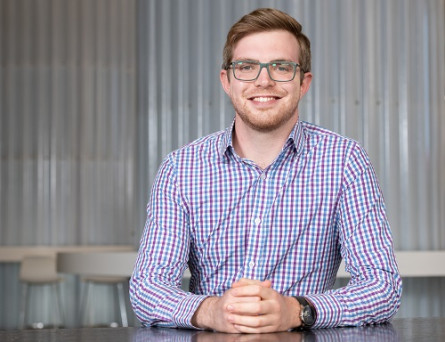Published Nov 5, 2020
High-quality inventions, a strong team, and wise partnerships are paying off for Wellington UniVentures, which this year has established a record four new spin-out companies.
The commercialisation arm of Te Herenga Waka–Victoria University of Wellington is celebrating the arrival of Rekover Therapeutics, X-Frame, Tasmanlon, and Bontia Bio in 2020 and promises it is just the start.
While each company specialises in something completely different—human health, construction, energy, and animal health respectively—their success in getting to the spin-out stage is being put down to the same set of ingredients.
Chief Executive Dr Anne Barnett says this diversity of companies reflects research excellence and talent across the University and Wellington UniVentures’ experience at developing intellectual property in many subject areas to a very high standard.
“This year is not just a one-off for us. It is the beginning of a sustained effort creating high quality new companies which will provide direct local benefit to Wellington and New Zealand."
“The quality of research being undertaken at the University, combined with the depth of expertise in our commercialisation team and relationships with local and international investors, means we expect to continue to create more new innovative companies."—Dr Anne Barnett, Wellington UniVentures
“We have a great pipeline of opportunities we are working on for next year and 2022.”
Creating a new company from university research takes a “huge amount of hard work”, Dr Barnett says.
“To attract the investment funding and the team needed to form a new company, the research and intellectual property underpinning the opportunity has to be truly innovative and market leading, solving real problems for society, industry or the environment.”
Rekover Therapeutics will help researchers working on a potential cure for those with multiple sclerosis (MS), a chronic neurological disorder that affects 2.5 million people worldwide.
At present, disease-modifying therapies only slow the rate of accumulating disability in patients with MS, but none actually reverse it.
However, Professor Anne La Flamme and Associate Professor Bronwyn Kivell from the School of Biological Sciences have found a set of compounds that could potentially restore the myelin sheath and consequently restore function to MS patients.
Another spin-out company, X-Frame, features a reconfigurable structural timber framing system which reduces end-of-life waste and allows for the repair, reconfiguration and reuse of every building element.
Creator, Wellington School of Architecture doctoral student Ged Finch, came up with the idea to prevent waste while a Master’s student in 2017.
“The majority of existing solutions had one major pitfall—they all relied heavily on carbon-intensive materials like steel and concrete. In response, I worked to develop a way of building that was both low-carbon and easily recoverable and reusable.”
Working with Wellington UniVentures, Ged become involved with the KiwiNet Emerging Innovator programme.
“This opened my eyes to the commercial potential of the X-Frame technology and the key steps that would need to be checked-off to make progress. We are now looking to raise capital and accelerate things further.”
Spin-out company TasmanIon is developing a non-flammable, cost-competitive and more sustainable aluminium-ion battery, which can compete with the current market-leading lithium-ion battery.
Co-founder, Dr Shalini Divya from the School of Chemical and Physical Sciences explains how Wellington UniVentures have supported her in commercialising this new and transformative technology.
“The team from Wellington UniVentures helped me every step of the way, from filing to pre-market validation to due diligence and more. Their support has helped me transition smoothly from the world of science to the world of business.”
TasmanIon is now raising capital to fund further development and look at potential markets.
Bontia Bio is utilising its proprietary synthetic biology platform technology for production of a natural, anti-parasitic treatment for companion and agricultural animals. The treatment has low resistance in the target population and is not toxic to the host.
Co-founders Professor Emily Parker, of the Ferrier Research Institute Wellington Faculty of Science and Dr Matthew Nicholson, of Wellington UniVentures developed their synthetic biology technology to enable creation and low-cost production of high value natural products for pharmaceutical and agricultural applications. With capital raising in the short-term future, the team is focused on further proof-of-concept work around their flagship animal health product.
General Manager Commercialisation, Hamish Findlay, says Wellington UniVentures has built a strong team during the past three years.
“It takes the research findings from the University through a process to understand the market and what development is needed for the technology to be investable. We also take the necessary steps to provide the business with robust intellectual property protection." - Hamish Finlay, Wellington UniVentures
“The time it takes to get a technology to a point where a new company is feasible is often more than two years. So the success this year is a result of the work over the previous three and what we hope will be the new normal as Wellington UniVentures continues its activities.”
Dr Barnett says a partnership with Booster Financial Services in 2018 had been a key move.
“This created the $10 million NZ Innovation Booster Fund, which has allowed us to co-invest with Booster in the establishment funding round of our new companies.
“That provides us with much greater ability to get new companies up and running.”


